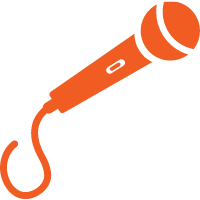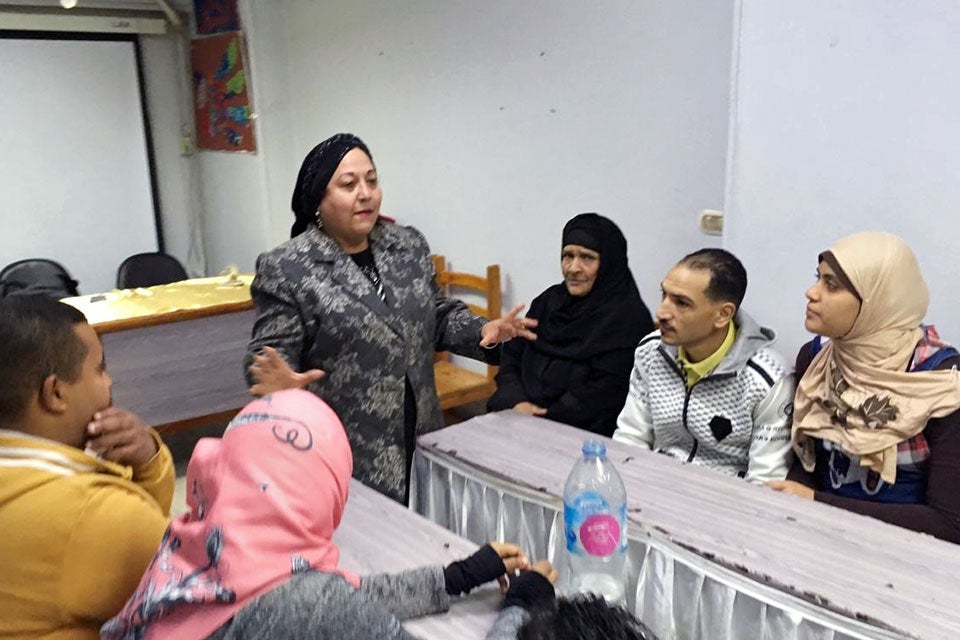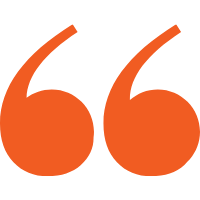Hand over the mic to: Aida Nour ElDin, Egypt
Lawyer, advocate, community leaderDate:

For the 16 Days of Activism against Gender-Based Violence, we are handing over the mic to women on the front line, those who are battling COVID-19 and the pandemic of violence against women and girls that’s relentless and rising. These are the voices of survivors, essential workers, and leaders, telling us what’s urgent, and how we can stop the escalating violence, recover and rebuild from COVID-19.


The neighbourhoods where we are implementing the Safe Cities and Safe Public Spaces Programme in Alexandria in collaboration with UN Women and the Government are home to some of the most marginalized communities in the city. Because of the [prevailing] social norms, women in these communities are often told that it is okay to be beaten by their husbands – even their own families would say that when they complain. Women are expected to remain silent and accept violence.
What can you do to help?
- Connect survivors with the services that they need, guide them and facilitate their access to support services
- Advocate for survivors’ rights; ensure their rights are protected to the highest possible standard
We are trying to change this through community awareness raising activities and by enhancing the capacities of lawyers and healthcare workers [to address violence against women]. Our work is very challenging because these neighbourhoods often have higher crime rates, and it is not always safe for our staff and community volunteers who work on the ground.
When Alexandria was on a partial lockdown, a lot of men working in the informal sector lost their livelihoods overnight and children stopped going to school. This meant that women in these communities had to take on additional unpaid care responsibilities and in some cases, experienced more violence in the home. These were difficult times also for women-headed households who worked in the informal sector.
At the beginning of the pandemic, it was difficult for us to reach survivors. We were frustrated and stressed, but quickly re-grouped and joined forces with the community and the government so that we could continue our work.
With UN Women support, we received protective equipment and sanitizers, which allowed us to continue some [in-person] activities. We drove around the neighbourhoods in cars with big mics, to give information related to violence against women as well as COVID-19 prevention measures.
We also shifted our awareness raising activities to online platforms. This transition [to online platforms] was not an easy one – we had to quickly train our staff, volunteers and community leaders on using online platforms, with UN Women support. Eventually we were able to reach even more community members online, compared to the in-person activities we used to do before.
What I learned from the pandemic is that we should all be ready to respond to any crisis anytime. I believe that everyone has a role to play in connecting survivors with the support that they need and in advocating for their rights.”
UN Women programmes work to tackle gender-based violence and support survivors
Aida Nour ElDin is the Chairperson of the Women and Development Association (WDA), a grassroots civil society organization that specializes in providing various services to survivors of violence and raising community awareness in the Mediterranean city of Alexandria, Egypt. As COVID-19 hit countries around the world, UN Women collaborated with the Association from March to September 2020 to provide capacity-building training to more than 75 first responders (such as lawyers and psychosocial counsellors) and to distribute more than 400 packages of sanitizers and protective equipment in Mandara Qebly and Ezbet ElHagana neighbourhoods in Alexandria.
This collaboration falls within the framework of the UN Women “Safe Cities and Safe Public Spaces Programme” in Egypt, implemented in partnership the National Council for Women and the Alexandria Governorate, and in collaboration with local civil society The programme is generously funded by the Kingdom of the Netherlands.